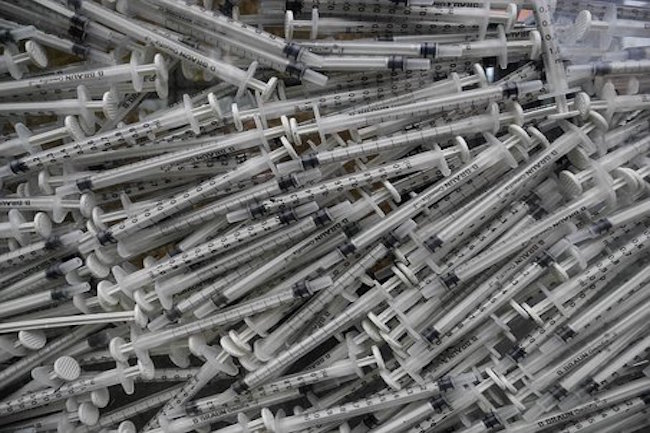FDA: Monitor COVID Vaccine Recipients for Facial Paralysis by Dr. Joseph Mercola
Media is featuring a near-24/7 stream of propaganda encouraging the public to get a COVID-19 vaccine. Most of the advertisements make no mention of the potential adverse effects associated with it, which is a key factor necessary for informed consent. Facial paralysis, sometimes referred to as Bell’s palsy when it has no known cause, is one such adverse effect.
During Phase 3 clinical trials of mRNA COVID-19 vaccines, more cases of facial paralysis occurred in the vaccine groups (seven out of 35,654) compared to the placebo group (one out of 35,611), leading the U.S. Food and Drug Administration (FDA) to recommended monitoring vaccine recipients for facial paralysis.1
Facial Paralysis’ Ties to COVID Vaccine
In response to the FDA recommendation to monitor for facial paralysis following COVID-19 vaccination, and noting that the clinical trials did not establish a causal relationship, a team of French researchers explored the connection further using the World Health Organization pharmacovigilance database, VigiBase.2
They concluded that the COVID-19 vaccines did not appear to have an association with facial paralysis, stating “if an association between facial paralysis and mRNA COVID-19 vaccines exists, the risk is likely very low, as with other viral vaccines.”3 However, it should be noted that the control groups used for comparison were not inert placebos, but one group using “other viral vaccines” and one group that received influenza vaccines.
It’s well-known that Bell’s palsy is an adverse effect following vaccination, so all the study found is that COVID-19 vaccines do not increase the risk above and beyond that of other viral vaccines.
For instance, an association between administration of the inactivated influenza vaccine and onset of Bell’s palsy symptoms has been previously documented,4,5 so comparing COVID-19 vaccines to flu vaccines isn’t giving a true picture of risk, as would emerge if compared to an inert placebo. As the researchers noted:6
“Isolated facial paralysis after vaccination has been reported as case reports for decades with almost all viral vaccines, and it is thought to be immune mediated or induced by viral reactivations (eg, reactivation of a herpes virus infection) …
When compared with other viral vaccines, mRNA COVID-19 vaccines did not display a signal of facial paralysis … the reporting rate of facial paralysis after mRNA COVID-19 vaccination found in the present study is not higher than that observed with other viral vaccines.”
This isn’t to say that cases weren’t reported, however. Out of 133,883 adverse drug reactions reported following mRNA COVID-19 vaccines reported to VigiBase on March 9, 2021, the researchers identified 844 facial paralysis-related events, including (some of the cases reported multiple adverse events):
- 683 cases of facial paralysis
- 168 cases of facial paresis
- 25 cases of facial spasms
- 13 cases of facial nerve disorders
Cases ‘Almost Always Dramatically Underreported’
WHO’s VigiBase pharmacovigilance database uses data from different systems, including the U.S. Vaccine Adverse Event Reporting System (VAERS), which makes up about one-third of the reports used in the French study.7 Adverse events are notoriously underreported to VAERS and other pharmacovigilance databases, which rely on mostly voluntary reports, making it difficult to draw population-wide estimates from their data.
As noted by Al Ozonoff, Ph.D., of Harvard Medical School in MedPage Today, adverse event cases are “almost always dramatically underreported in terms of the incidence of events. I think we simply don’t have enough data right now to come to a firm conclusion.”8
Study co-author Charles Khouri, PharmD, of University Grenoble Alpes in France, also told MedPage Today, “While spontaneously reversible in the vast majority of cases, facial paralyses are serious and debilitating adverse drug reactions. Should a link be established, this adverse reaction has the potential to hamper the vaccination campaign.”9




